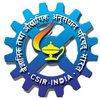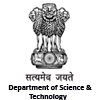|
|
 |
 |
 |
 |
||
| Genetics & Plant Breeding Division | |
|
With the establishment of the Division of Genetics and Plant Breeding in 1978 systematic efforts were initiated on genetic improvement of Medicinal and Aromatic Plants (MAPs) as its core mandate activity. In fulfilling the core mandate and aspired objectives, significant strides have been made in the development of improved varieties in all the major Medicinal and Aromatic plants (150 improved varieties in 48 MAPs species) and elucidation of genetic and cytogenetic principles for better understanding of the genetics of target plants leading to publication of over 400 research publications. The focus of the current scientific activities is centred along the following lines of investigation: Application of recombination, Cloline, Mutation, polyploidy and Molecular Approaches for Qualitative and Quantitative Breeding of MAPs. Utilization of Biometrical, Population and Association Genetics to realize Genetic Improvement of MAPs. General and Molecular Cytogenetics, DNA marker resources and Molecular phylogenetics. |
|
| Plant Biology Division | |
|
Division of Plant Biology consists of Departments-Botany & Pharmacogonosy and Metabolic and Structural Biology: 1. Botany & Pharmacogonosy: Research activities of the department are aimed at survey, collection and authentication of Medicinal and Aromatic Plants (MAPs) from different phyto-geographical regions of the country. Collation and documentation of traditional knowledge on medicinal plants from tribal people. Introduction of MAPs in CSIR-CIMAP campus for developing new chemo- types and varieties. Enhancement of herbarium specimens and crude drugs in repository of CIMAP and its maintenance. Publication of Books on MAPs for awareness in R & D activities of the institute and Knowledge Calendar. Investigations on various physiological factors affecting accumulation of secondary metabolites viz. alkaloids and essential oil in important MAPs. Established techniques of sand and hydroponics culture suitable for MAPs are employed to grow the plants. Development of conventional (emulsion/suspension/gel/cream/solution/syrup/capsule etc) and novel drug delivery (micro-emulsion /nanoemulsion/ phytosomes/ microsphere/ nanogel etc.) based herbal formulations. Drug-Safety evaluation of developed formulation using skin, mucus membrane and irritation assay. 2.Metabolic & Structural Biology: Research activities at the department are primarily aimed at the delineating and mechanistically describing the plant secondary metabolites related biosynthetic pathways and their steps, through structural and functional characterization of the relevant genes/ proteins/metabolites involved on important MAPs as Withania somnifera, Centella asiatica, Neem, mint and Ocimum. The ultra-modern techniques such as transcriptome mapping, RNAi, genetic transformation on one hand and on other hand conventional approaches to generate knowledge for the holistic understanding of various physiological and regulatory issues of the biogenetic processes for the commercially important metabolites are utilized. The bioinformatics aspects of molecular modeling, computational biology and chemistry, e.g., the study of molecular shape and properties, molecular simulations, protein modeling and drug design, structure activity, toxicity and property relationships, database mining and compound library design are also carried out. Crystallographic and crystal engineering studies of biologically active natural products and cytotoxic plant peptides are also pursued at the department. |
|
| Plant Biotechnology Overview | |
|
The plant biotechnology group at CSIR-CIMAP is engaged in three major domains of high quality basic and translational research of medicinal and aromatic plants biology namely, prospection and alignment of secondary metabolism related genes through structural and functional genomics tools and system biology approach; transgenic MAPs designing and cell/tissue culture-based pathway engineering for improved productivity of high value volatiles and phytoceuticals and; ex-situ biodiversity management and genetic improvement through gene, DNA and tissue banking. Emphasis is also being laid down to understand the biochemical cross-talks between primary and secondary metabolic routes to identify the limiting steps of metabolic flux at the level of enzymes, genes and cellular differentiation/specialization through transcriptom and metabolites profiling. The biogenetic pathways and their regulatory mechanisms under immediate focus and scientific scrutiny include the synthesis of artemisinin in Artemisia, morphinane alkaloids in opium poppy, terpenoid indole alkaloids in Catharanthus, phenylpropanoid and terpenoids in Mentha and Ocimum species, triterpenoid saponins in Centella and; steroidal lactones in Withania. Efforts to provide scientific basis to some of the traditional concepts of Ayurveda through modern biological approaches is another research priority of the department. The department is equipped with state-of-art infrastructure and skilled manpower for in-silico and wet lab experimentation in all areas of genomics, proteomics, metabolomics and transgenics research. With an existing work-force of twelve scientists and over 60 research scholars the department is also steering several sponsored and networked projects of various funding agencies. |
|
|
|
|
| Soil Science Department Overview | |
|
Department of Soil Science mainly conducts research for on-site specific fertilizer and manure requirement, fertilizer management for higher utilization efficiency and primary, secondary and micronutrient requirement of commercially important medicinal and aromatic crops (MACs. Areas of research include soil fertility evaluation in long term experiments on mint based cropping system, utilization of sodic waste land through cultivation of high value MACs, phytoremediation of heavy metal polluted soil, rhizosphere microbiology of sodic and heavy metal polluted soils, allellopathy and soil-microbe-plant interaction. The areas of interest of the department include elucidating fertilizer and nutrient requirement and their management for the cultivation of medicinal and aromatic plants in both normal and stressed soil at different conditions, utilization of problem soils affected with salinity, sodicity and metal toxicity and their necessary management for the cultivation of identified MAPs tolerant towards respective abiotic stress |
|